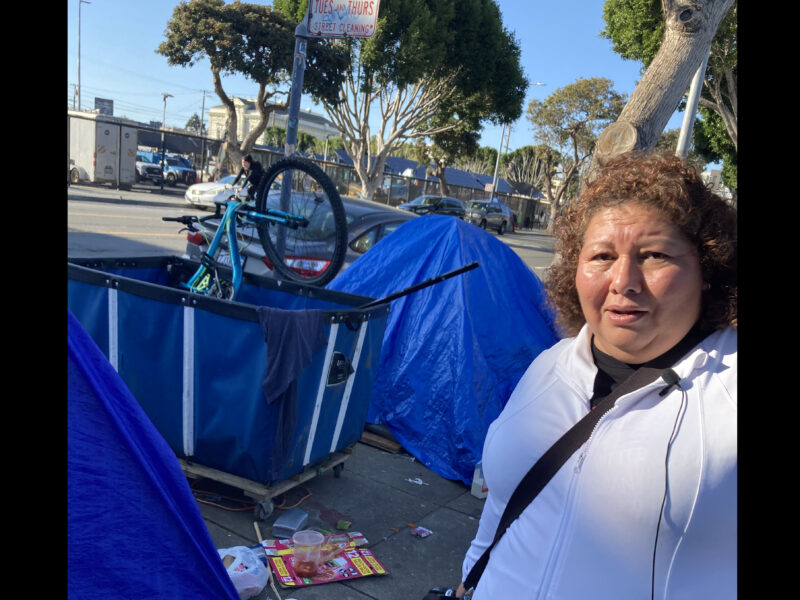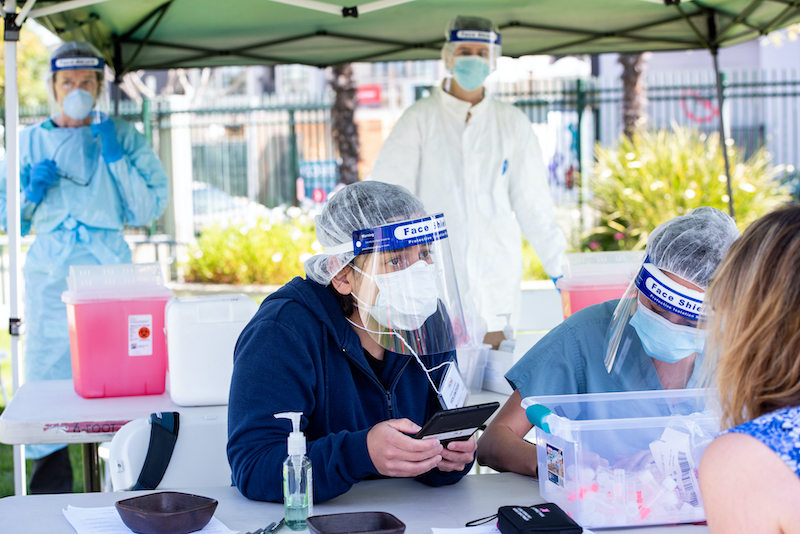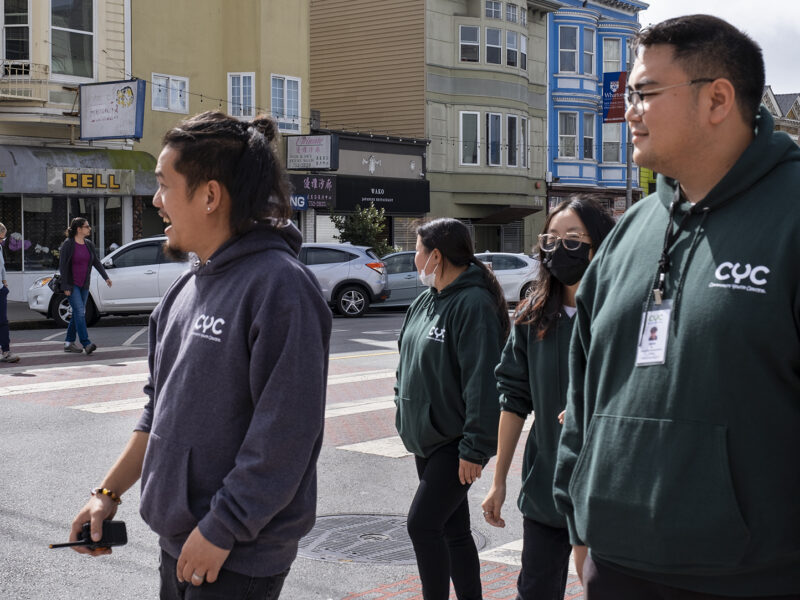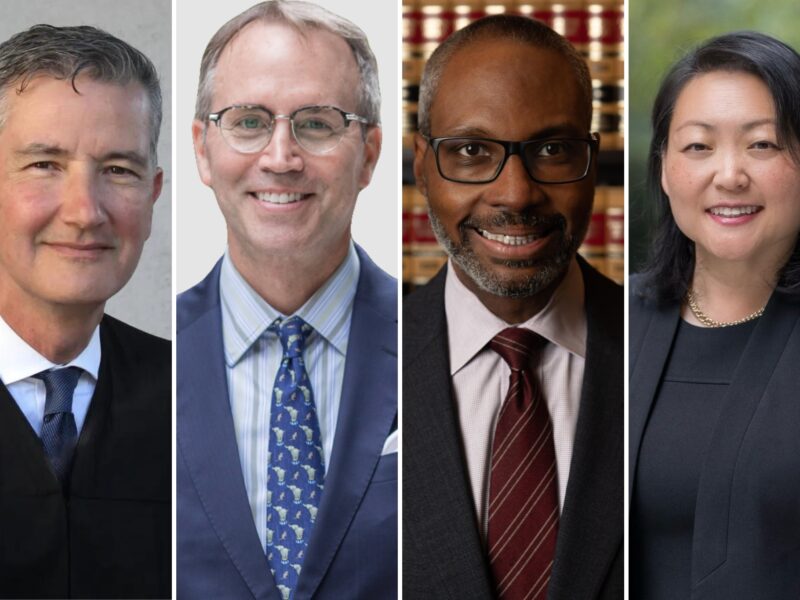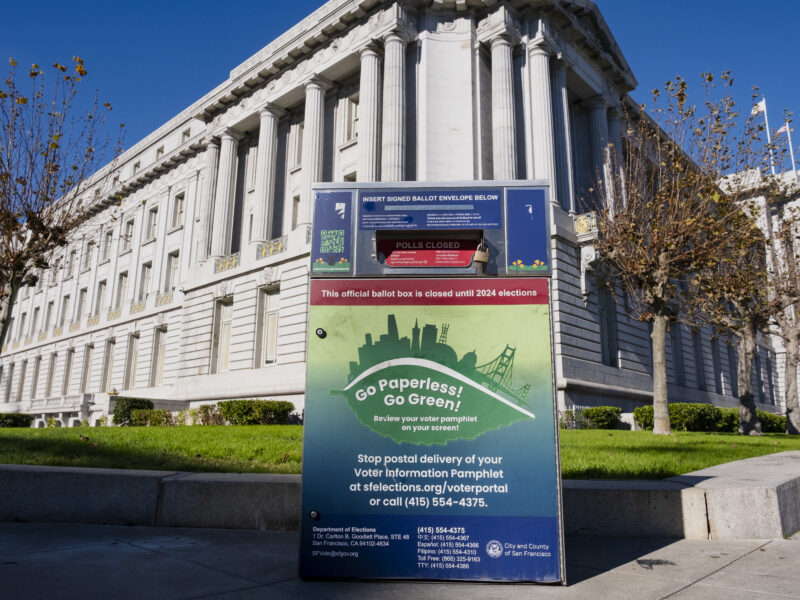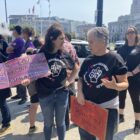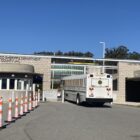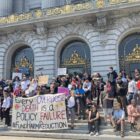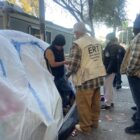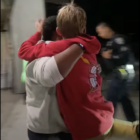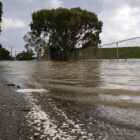Since the beginning of the COVID-19 pandemic, San Francisco’s Mayans have been dying of drug overdoses at elevated rates. More robust health services are needed, experts say, and providers should be culturally competent and able to communicate effectively with these residents, who may not be fluent in English or Spanish.
Health
Drug Policy, Addictions Specialists Oppose Prop F Tying Welfare to Drug Tests
Numerous drug policy experts and addictions specialists from across the country — as close as UCSF and as far away as Rhode Island — publicly oppose a San Francisco ballot measure that would compel adult welfare recipients to undergo drug screening before collecting cash benefits.
And efforts to publicize the measure have brought practitioners who don’t always agree about addiction treatment practices to the same side of the debate.
“Civic” Podcast
SF Students, SRO Residents Train to Reverse Drug Overdoses
Experts in overdose prevention say many teen and adult lives could be saved if more people know how to identify and respond to overdoses. In San Francisco, an array of programs are providing overdose response training to teenagers, college and medical-school students, and residents in neighborhoods that have a high rate of overdose deaths.
Overdose Crisis
City Officials Lack Urgency to Prevent Overdose Deaths, Say Safe Consumption Proponents
Several weeks after a crucial legal hurdle blocking safe consumption sites in San Francisco was seemingly resolved, proponents said they were dismayed that city leaders and public health officials were still not greenlighting centers that could reduce deaths related to drug use.
Overdose deaths have reached 620 this year — on track to have the highest annual tally since counting began, with fentanyl causing the vast majority of fatalities, according to the chief medical examiner’s latest report.
Overdose Crisis
DA’s Opposition to Drug Diversion Programs Undermines Public Safety, Say Legal Advocates
San Francisco District Attorney Brooke Jenkins has criticized and diminished the use of diversion programs that offer criminal defendants accused of selling drugs rehabilitation, counseling and training rather than jail sentences.
Since taking office 15 months ago, Jenkins has reduced the number of referrals to the San Francisco Pretrial Diversion Project by 70%, according to its CEO David Mauroff.
And as San Francisco’s rate of overdose fatalities reaches more than two deaths a day, Jenkins is pushing for defendants accused of selling drugs to remain in jail. But some legal experts say that’s a bad strategy both for the defendants and for public safety.
“Civic” Podcast
Drug Crackdown Has Sparked Violent Turf Warfare in Central San Francisco, Supervisor Says
A drug crackdown in the Tenderloin and South of Market has resulted in more than 600 arrests, with authorities seizing more than 200 pounds of fentanyl since the initiative launched in May, Mayor London Breed said.
But the coordinated effort, involving city and state law enforcement agents, appears to be leading to violent clashes, said Supervisor Dean Preston, whose district includes the Tenderloin. “They’re poking a hornet’s nest,” he said in an interview.
Health
SF ‘Failing’ on Housing as Overdose Solution, Health Expert Says
Sarah Evans has spent decades advancing drug overdose prevention initiatives around the world. As a division director for Open Society Foundations — a grantmaking network founded and chaired by business magnate George Soros — Evans promotes one surefire way to help abate San Francisco’s homelessness and fatal overdose crisis: housing.
“The way that people get off the street is by getting into housing, where people can get support and stay there even while they are continuing to struggle with substance use disorders of all kinds and mental health issues,” said Evans, who leads the organization’s drug policy programs globally. “It literally is the only way.”
San Francisco isn’t doing enough to meet this housing need, according to health experts.
Health
San Francisco’s Fatal Overdose Crisis Was Decades in the Making
As San Francisco continues to search for solutions, our team at “Civic” is exploring the origins of the city’s opioid overdose crisis, what has been done to help and what might be making things worse. After six months of research involving hundreds of studies, reports and archival news clippings, and three dozen interviews with people with lived experience and professional expertise in homelessness, addiction, medicine, criminal justice, housing, social work, street outreach, business, education, harm reduction, policymaking and advocacy, we’re launching the series, “San Francisco and the Overdose Crisis.”
Over six episodes, the series will explore what influenced rampant opioid addiction and its connection to homelessness, the 150-year history of policing and prosecuting drugs in San Francisco, the long battle to open a safe consumption site in the city, and grassroots efforts to stem the tide of drug-related fatalities.
“Civic” Podcast
Children Violently Removed by Court Order Resurface and Report Traumatic Experience
It has been seven months since Maya Laing and her brother Sebastian, who were 15 and 11 at the time, were violently taken from their grandmother’s Santa Cruz home by court order.
Judge Rebecca Connelly, who oversaw their custody case, rejected the siblings’ claims that their mother abused them, and last October she ordered them into reunification training to repair their fractured relationship with their mother.
A friend of Maya’s recorded and posted to social media a video of the siblings resisting while transport agents from Assisted Intervention physically overpowered them in October. That was the last time Maya and Sebastian’s father, his family and the children’s friends had any knowledge of their condition — until now.
SF Reparations Plan Nears Submission, but Funding Not Yet Secure
After 2½ years of meetings, community discussions, historical deep dives and policy generation, a panel tasked with proposing how San Francisco might atone for decades of discrimination against Black residents is ready to ask the city to step up and support equity rhetoric with action.
San Francisco’s African American Reparations Advisory Committee is aiming to submit its final recommendations to the city by June 30, according to Brittni Chicuata, director of economic rights at the city’s Human Rights Commission. In the meantime, the city’s annual budget process is in full swing, which may affect funding and the timeline for whatever reparations policies the board decides to pursue.
Public Safety
Intense Weather Stress-Tested SF’s Emergency Response
Rains this winter and early spring ended the drought in the Bay Area and brought a kind of weather whiplash that put San Francisco’s Department of Emergency Management to the test.
Early in the storm cycle, the department faced challenges communicating with the public, especially with people experiencing homelessness. Internal confusion over the forecast delayed the opening of its Emergency Operations Center until a major storm was under way. In at least one instance, flood barriers were deployed too late to prevent homes and businesses from being inundated.
Despite those missteps, the city rallied a coordinated response from its Emergency Operations Center, where multiple city agencies, along with Pacific Gas and Electric Co. representatives, gathered to discuss and act on emerging issues in real time.
